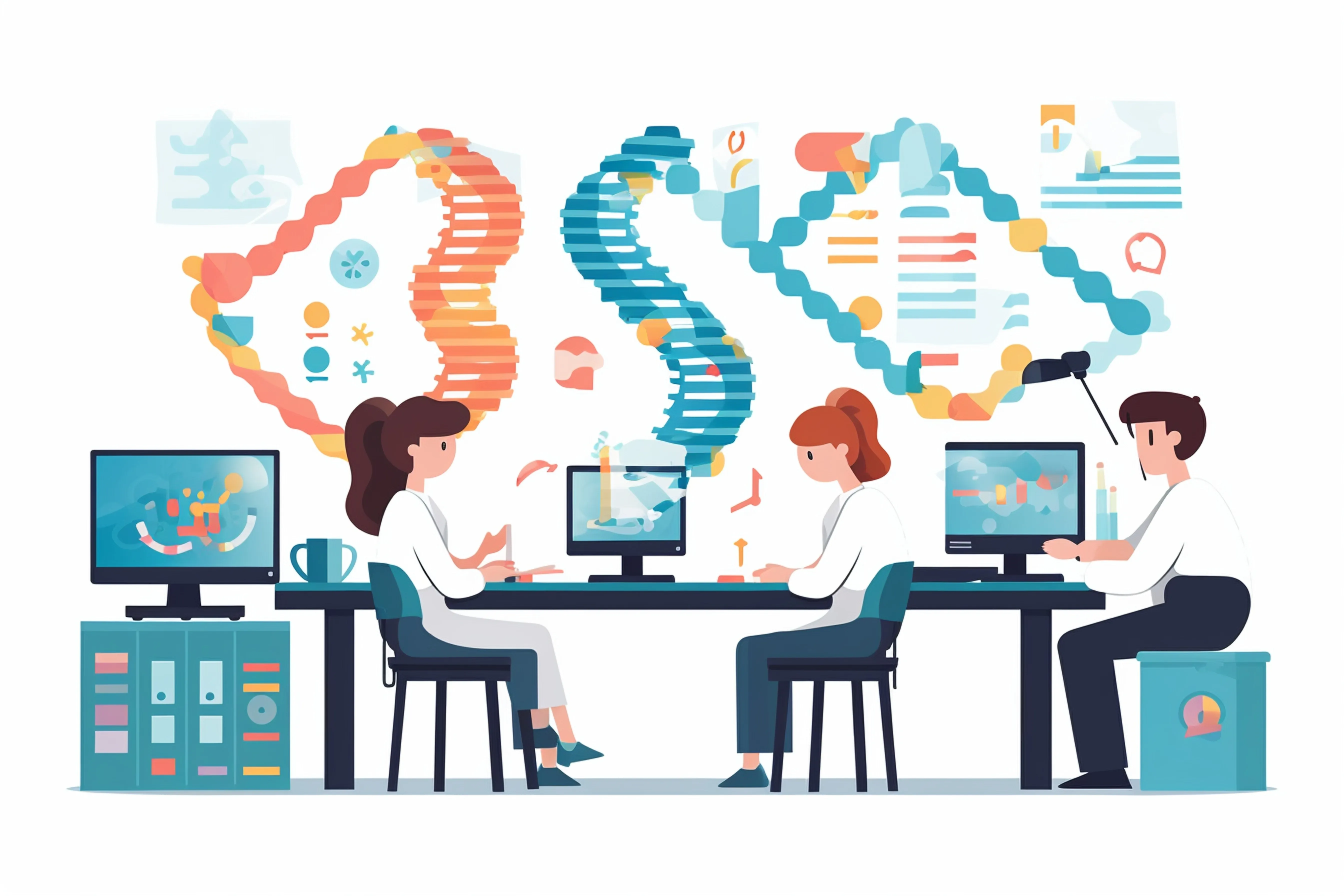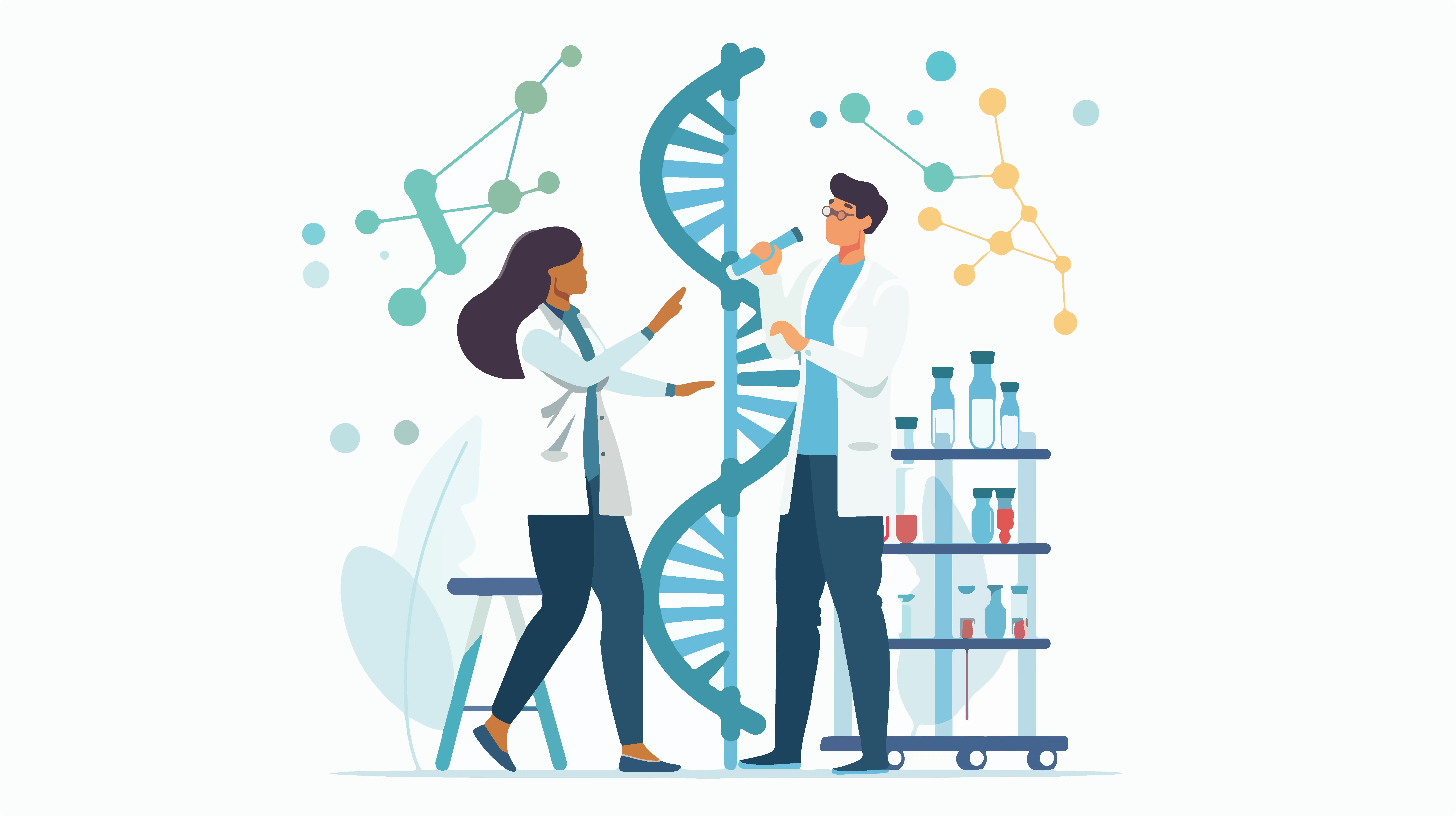Introduction: Bridging the Gap from Code to Cure
In the vast and intricate world of drug discovery, genomics has emerged as a transformative force. By decoding the very blueprint of life, genomics empowers scientists to understand diseases at their most fundamental level. This knowledge translates into precise, targeted therapeutics that address complex medical challenges. The journey from code (genomic data) to cure (therapeutic solutions) is reshaping the landscape of modern medicine, offering hope for previously untreatable conditions. Events like the Drug Discovery Innovation Programme, organized by World BI, serve as crucial platforms for exchanging groundbreaking ideas and fostering collaborations that propel this revolution forward.
Decoding the Language of Life: Genomics as a Foundation
- At its core, genomics is the study of genomes—the complete set of DNA within an organism.
- Advances in technologies like next-generation sequencing (NGS) have allowed researchers to uncover how genetic variations contribute to diseases.
- Genomic data provides unparalleled insights into the underlying mechanisms of conditions ranging from rare genetic disorders to complex diseases like cancer and diabetes.
- Genomics enables scientists to identify genes and pathways linked to specific diseases, setting the stage for drug development.
- For example, mapping the BRCA1 and BRCA2 genes has revolutionized breast cancer prevention and treatment. Similarly, genomic studies in Alzheimer’s disease have unveiled new therapeutic targets, paving the way for potential breakthroughs.

Target Discovery: Unlocking New Frontiers
- The discovery of therapeutic targets is a critical step in drug development, and genomics plays an instrumental role in this process. By studying genetic mutations and variations, researchers can identify proteins or pathways that drive disease progression.
- Recent advances, such as CRISPR-Cas9, have further enhanced target validation by enabling precise genome editing.
- For instance, researchers are using CRISPR to study genetic mutations linked to cystic fibrosis and sickle cell anemia, leading to innovative therapeutic strategies. Genomics also facilitates the identification of biomarkers that predict disease progression, improving early diagnosis and treatment planning.
Drug Development and Genomics: A Symbiotic Relationship
- Genomics and drug development form a symbiotic relationship, each driving advancements in the other.
- Personalized medicine, which tailors treatments to individual genetic profiles, is a direct result of this synergy.
- Genomic insights enable the design of drugs that target specific mutations, increasing efficacy and reducing side effects.
- RNA-based therapeutics, such as mRNA vaccines, represent a groundbreaking application of genomics.
- The rapid development of COVID-19 vaccines by Pfizer-BioNTech and Moderna exemplifies how genomic technologies can accelerate drug discovery. Similarly, gene-editing therapies are being developed to treat inherited disorders, exemplifying the transformative potential of genomics.
Clinical Trials and Genomic Stratification
- Genomics also enhances the design and execution of clinical trials. By stratifying patients based on genetic profiles, researchers can identify those most likely to benefit from a particular therapy.
- This approach reduces trial failures, speeds up regulatory approvals, and ensures that treatments reach patients more efficiently.
- Biobanks and large genomic datasets, such as those maintained by the UK Biobank and NIH's All of Us program, provide invaluable resources for genomic research.
- These repositories enable the identification of genetic factors influencing drug response, ensuring that therapies are both effective and inclusive.
Challenges and Ethical Considerations
- Despite its promise, genomics in drug discovery is not without challenges. Data privacy and security are significant concerns, as genomic information is highly sensitive.
- Ensuring equitable access to genomic therapies is another pressing issue, as the cost of these treatments can be prohibitive for many patients.
- Ethical considerations also arise in areas such as gene editing, where the potential for misuse underscores the need for robust regulatory frameworks.
- Balancing innovation with ethical responsibility is essential to ensure that the benefits of genomics are shared widely and fairly.
Collaboration: Genomics and the Future of Drug Discovery
- Collaboration lies at the heart of genomics-driven drug discovery. Partnerships between academia, industry, government agencies, and patient advocacy groups amplify the impact of research efforts.
- Initiatives like data-sharing consortia and public-private collaborations facilitate the pooling of resources and expertise, accelerating the development of innovative therapies.
Platforms like the Drug Discovery Innovation Programme are vital for fostering such collaborations. By bringing together thought leaders from diverse fields, these events catalyze the exchange of ideas and the formation of partnerships that drive progress.
The Future: Genomics as a Cure Catalyst
- As we look to the future, the potential of genomics in drug discovery is boundless. Precision medicine approaches, tailored to individual genetic profiles, promise to revolutionize healthcare.
- Breakthrough therapies for rare diseases, driven by genomic insights, are on the horizon.
- Emerging technologies, such as single-cell sequencing and AI-driven genomic analysis, hold the potential to uncover new dimensions of disease biology.
- By integrating these tools into drug discovery, researchers can accelerate the development of cures for some of the most challenging medical conditions.
The Journey Ahead

The journey from genomic code to therapeutic cure is one of innovation, perseverance, and collaboration. It is a testament to the transformative power of science and the collective commitment to improving human health.
As we embrace the possibilities of genomics, let us also acknowledge the responsibility it entails. By fostering partnerships, addressing ethical challenges, and prioritizing patient-centric approaches, we can ensure that the benefits of genomics reach those who need them most.
The Drug Discovery Innovation Programme, hosted by World BI, serves as a beacon of hope and progress in this endeavor. It is a call to action for researchers, clinicians, and industry leaders to come together, share insights, and chart a course toward a future where no disease is beyond cure.
Let us embark on this journey with a shared vision: to decode the mysteries of life and transform them into cures that change lives.